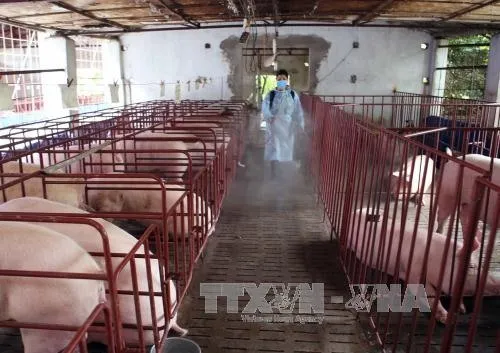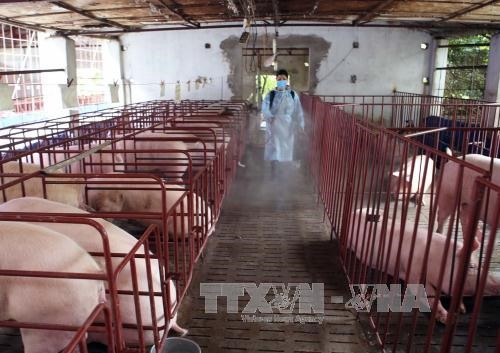Animal diseases are under control in Việt Nam


|
| Veterinary staff spray chemicals to prevent diseases at a pig farm in Quảng Ninh Province’s Quảng Yên Town |
HÀ NỘI — Việt Nam has managed to stamp out most diseases among cattle and poultry, according to the Department of Animal Health (DAH) under the Ministry of Agriculture and Rural Development.
No outbreaks of bird flu, blue ear or foot-and-mouth disease are reported in the country currently. However, the department urged localities to watch out, warning that the diseases can occur anytime with negligence in epidemic prevention, particularly as the risk of transmission of African swine fever (ASF) from China to Việt Nam is high.
The department has strengthened the surveillance system, early warning and responding practices in case an outbreak occurs.
African swine fever is a devastating infectious disease of pigs which is usually fatal. No vaccine exists to combat the virus. It does not affect humans or animal species other than pigs and wild boars. It can be transmitted either via direct animal contact or via dissemination of contaminated food.
China has taken drastic measures to control the diseases including stopping activity at live hog markets and banning the transport of pigs and pig products from affected areas, the DAH said.
According to the World Organisation for Animal Health, 19 countries and territories had reported the presence of African swine fever, with a total of over 704,588 pigs culled between late 2017 and September 15.
Data from the organisation and the Food and Agriculture Organisation also showed China had confirmed 20 outbreaks of African swine fever in Anhui, Heilongjiang, Henan, Liaoning, Jiangsu and Zhejiang since early August. The total number of pigs culled has reached over 50,000.
The DAH is co-ordinating with the FAO to strengthen diagnosis, testing, surveillance capacity and setting a response plan if an African swine fever outbreak is detected.
Regarding bird flu, blue ear and foot-and-mouth disease, the department has also issued a warning.
Localities were told to be proactive in preventing and combating epidemics. They were requested to intensify the control and strictly deal with the smuggling of poultry and cattle as well as closely monitor areas for early detection of disease. — Khanh
Tags:





